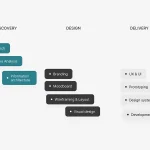
Big tech companies use their existing consumer networks, robust network effects and advanced data analytics to quickly expand into financial services. Regulators faces unique challenges with this “rebundling” of nonfinancial services into finance by BigTech companies.
Failure of one of these firms would likely have significant repercussions for markets and consumers, possibly even creating systemic risks.
Personalized Financial Services
Big Tech companies provide customized services to millions of consumers, offering tailored offerings through analysis of consumer data, advice or recommendations, product offerings tailored specifically for them, artificial intelligence (AI), machine learning (ML), predictive modeling, 360deg view of customers (360 customer view). This trend has made waves within finance industry while rapidly becoming an expectation among consumer.
Financial Institutions that invest in personalization are three times more likely to meet their cross-sell and upselling targets, as compared with those with low levels of personalization. Furthermore, studies show that understanding customer financial needs will lead to significant lifetime value gains.
Over the past decade, leading tech companies such as Apple, Facebook, Google and Amazon have emerged as market leaders. These tech titans are dominant players in communication internet devices, social media platforms, online search and e-commerce respectively.
Academic experts, advocates, and government agencies have released detailed reports about the dominance of tech giants like Google. Academic experts, advocates, and government agencies have highlighted their power as a threat, with academic experts accusing these giants of using their dominant position in one area to acquire or block competitors and suppress rival products, censor free speech and political advocacy, or using their monopoly control of gatekeeper platforms to discriminate against certain user types.
Data-Driven Decision-Making
Decision making using data should be an essential goal of all businesses. Tapping into key insights from across your operations and departments makes your company more adaptable and profitable while taking away any bias or subjectivity in their decision-making processes.
Big tech companies can utilize their expansive data analytics capabilities to provide tailored financial services. For example, they can use user data to recommend credit cards or insurance products that best suit individual users, which poses a considerable threat to traditional banks which typically offer generic offerings.
Tech companies are exerting influence in the finance industry through creating their own digital banking systems. Amazon has implemented its own payment system while Google is working on an app allowing users to send and receive money transfers without using bank accounts.
Note, however, that digital banking systems are often subject to the same oversight authorities that oversee traditional banks. Therefore, they must comply with strict rules designed to safeguard consumer rights and maintain financial system stability – something unfamiliar tech giants may struggle with due to regulatory requirements and profit motives competing.
Disruption of Traditional Banking Models
Large tech firms have long been disrupting traditional business models across a range of industries, and now they’re entering the finance industry. Leveraging consumer franchises and digital expertise, these disruptive forces threaten banks with disruption; potentially making financial services more competitive and effective services.
Tech companies rely on data to fuel their business models and profit from personalized advertising. Tech firms use consumer purchase habits as leverage against banks that do not possess access to as much personal data about individual consumers.
Big tech companies possess the ability to innovate quickly. This allows them to develop products that are more user-friendly than existing financial services offerings – for instance providing payments, credit cards, loans and robo-advisory services all from one app is sure to draw customers’ interest while potentially cutting time and costs associated with managing finances.
Banks face an ongoing struggle when competing with large tech firms without becoming disrupted themselves. One approach is partnering with them on developing innovative products; an example being Mastercard’s partnership with various e-commerce platforms to enable instant payments as well as its early adoption of open banking, which enables third-party developers to build apps integrated with financial services.
New Financial Ecosystems
Tech giants pose an unprecedented threat or opportunity for traditional banks.
Financial institutions that seek to defend their market position and maintain competitive edge must transform their digital capabilities in order to provide superior, highly personalized digital services that satisfy customer expectations and ever-evolved requirements.
To accomplish this goal, the most efficient strategy is to embrace the idea of the digital financial ecosystem – a modular IT architecture pattern comprising microservices, APIs and data analytics designed to facilitate effective cooperation among different players within one digital infrastructure.
Customer engagement models such as this encourage companies to develop value propositions that meet multiple customer objectives and customer segments simultaneously. For instance, banks could use customer engagement models like this one to offer one platform that combines features from mobile banking apps, online banking systems and Treasury Management Systems; additionally, consumers may use it access FinTech products such as credit cards, loans or savings accounts.
Financial ecosystem strategies can be an ideal fit for traditional and Big Tech companies alike, as it enables them to meet consumer demand for more choices, continuity and breadth of financial services. Furthermore, this strategy helps increase brand health while simultaneously expanding wallet share.







